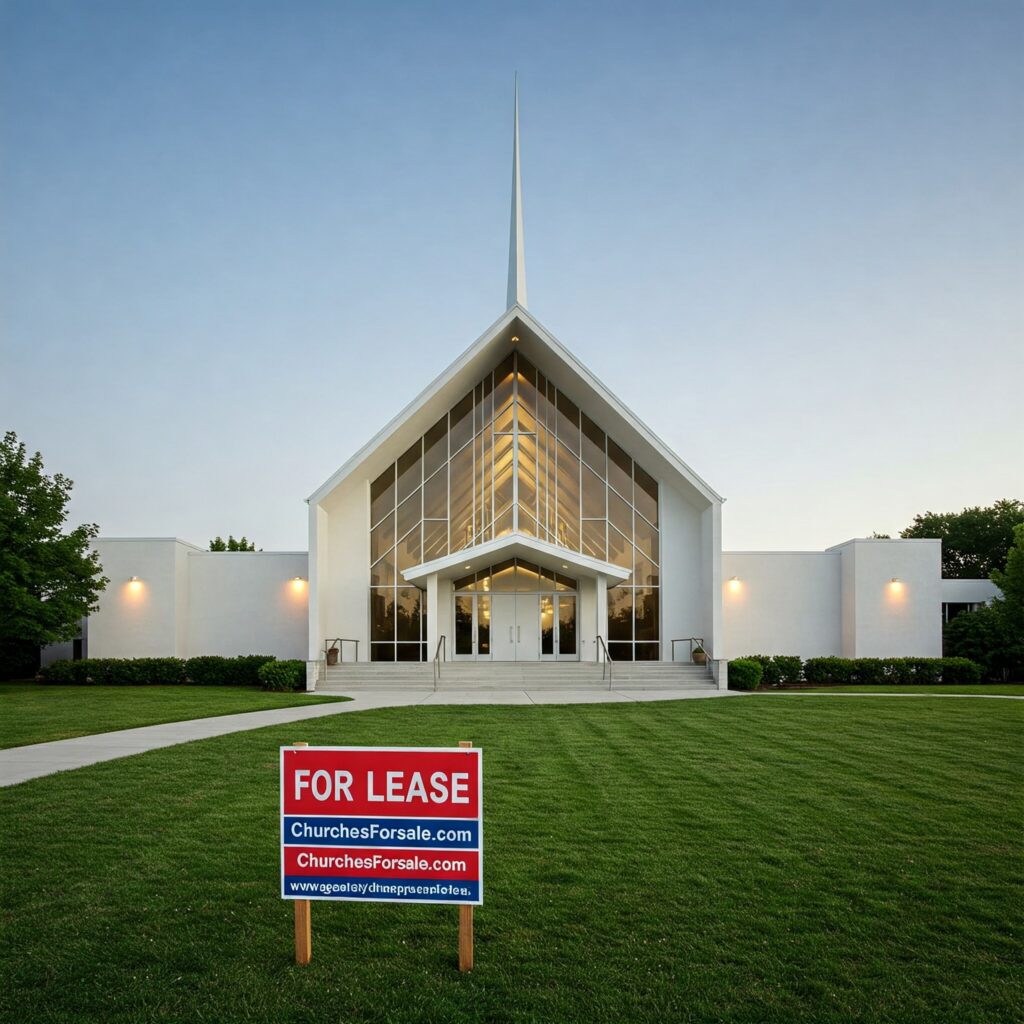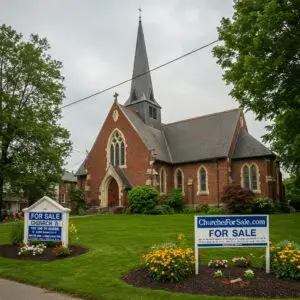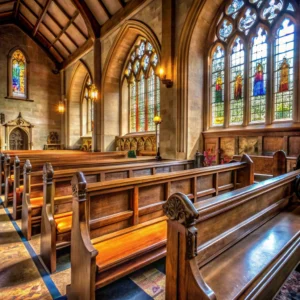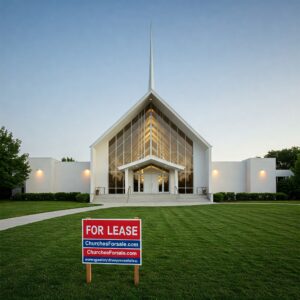
Leasing a Church Property: What to Know
Leasing church property is becoming an increasingly popular and flexible option for congregations looking to maximize the use of their real estate. Whether your church is experiencing growth and needs more space, or you have underutilized facilities that could generate income, leasing offers a practical solution. Many churches today are exploring ways to adapt to changing demographics and financial realities, and leasing is often at the top of the list of creative strategies.
Unlike selling, leasing allows a congregation to retain ownership of its property while still benefiting from its value. This can be especially helpful for churches that want to maintain a long-term presence in their community or keep their options open for future ministry opportunities.
Leasing can also foster partnerships with other organizations, from schools to nonprofits, that align with your church’s mission, vision and values.
However, leasing church property is not as simple as signing a standard rental agreement. There are important legal, financial, and operational considerations that must be addressed to ensure the arrangement benefits your congregation and protects your interests. In this article, we’ll break down the key aspects of leasing a church property, including lease types, negotiation tips, legal and insurance requirements, and more-making church real estate simple for you. If you’re searching for churches for sale or lease, understanding these factors is essential for a smooth and successful experience.
1. Why Leasing Can Be a Flexible Option
Leasing provides churches with flexibility that ownership or outright sale cannot match. For congregations experiencing fluctuating attendance or uncertain long-term plans, leasing allows you to scale your space up or down as needed. This is particularly useful for new church plants, growing ministries, or those in transition who may not be ready to commit to a permanent location.
Leasing can also help churches generate additional income by renting out unused portions of their property. This income can support ministry programs, building maintenance, or community outreach initiatives. In some cases, churches have successfully leased space to schools, counseling centers, or other faith-based organizations, creating mutually beneficial partnerships.
Finally, leasing keeps your options open. If your congregation’s needs change, you can renegotiate the lease or seek a new arrangement at the end of the term. This flexibility is invaluable in today’s rapidly changing landscape for churches for sale or lease.
2. Types of Church Leases
There are several types of leases that churches might encounter. The most common is the standard commercial lease, which outlines the terms, rent, and responsibilities of both landlord and tenant. These leases can be short-term (often one year) or long-term (several years), depending on the needs of both parties.
Another option is a shared-use or co-location lease, where the church and tenant share access to certain spaces, such as classrooms, kitchens, fellowship halls, or even your parking lot. This arrangement requires clear scheduling and communication to avoid conflicts and ensure each party’s needs are met.
Some churches may also enter into a ground lease, where only the land is leased and the tenant is responsible for constructing or maintaining the building. This is less common but can be useful in specific situations. Were you gifted a piece of land? Some consider selling it outright, but what if you leased the land and helped it generate more cash flow for your ministry each month. We have served as coaches during considerations like this where we can do a financial and “market” analysis to determine what a ground lease might run you each month in income.
Understanding the different lease types will help you choose the best fit for your congregation and avoid surprises down the road. You always want to do your homework up front, but you can utilize leases for your church to create more opportunities to steward your mission, vision and values.
3. Legal Considerations and Zoning Issues
Before leasing any part of your church property, it’s crucial to understand the legal landscape. Zoning laws, deed restrictions, and local ordinances can all impact how your property can be used. For example, some deeds contain clauses that restrict the property’s use to religious purposes, or require the property to revert to the original owner if it ceases to function as a church. We have seen some crazy deed restrictions in our times as church real estate specialists.
It’s also important to ensure that the lease agreement is drafted by an attorney or local real estate broker/agent familiar with church and nonprofit law and real estate. This will help you address unique issues such as compliance with church policies, subleasing restrictions, and termination clauses. Consulting with a real estate attorney early in the process can save your church from costly legal headaches in the future.
Finally, be aware of potential tax implications. Leasing to organizations with a different mission or for commercial purposes could affect your church’s tax-exempt status or expose you to unrelated business income tax (UBIT). Always seek professional advice to ensure compliance with federal, state, and local regulations. In this case please seek advice from a local CPA that is well versed in non-profit and church finance.
4. Negotiating Lease Terms
Negotiating a church lease is different from negotiating a typical commercial lease. Churches should prioritize flexibility, mission alignment, and financial sustainability. Start by determining the ideal lease length-shorter terms provide flexibility, while longer terms may offer better financial stability and incentives from landlords.
Key terms to negotiate include rent amount, renewal options, maintenance responsibilities, and use of shared spaces. It’s wise to include an escape clause that allows your church to terminate the lease early under certain conditions, such as a decline in attendance or a change in ministry direction.
Avoid personal guarantees whenever possible. Lease agreements should be signed by the church as an entity, not by individual leaders, to protect personal assets and limit liability. Always have an attorney review the final agreement before signing.
5. Insurance Requirements
Insurance is a must when leasing church property, whether you’re the landlord or the tenant. Liability insurance protects against claims arising from injuries or property damage during the rental period. Both parties should carry adequate coverage, and the lease should specify insurance requirements in detail.
The tenant should be required to name the church as an additional insured party on their policy. This ensures that the church is protected if an incident occurs on the premises. It’s also important to review your existing policy with your insurance agent to confirm that it covers leased spaces and any new risks associated with the lease.
Finally, consider coverage for improvements or modifications made to the property. Leaseholder or tenant improvements insurance can help recoup costs if these upgrades are damaged or destroyed during the lease term. Addressing insurance requirements upfront can prevent disputes and financial losses later.
6. Financial and Tax Implications
Leasing can provide valuable income for churches, but it’s important to understand the financial and tax implications. Rental income may be subject to unrelated business income tax (UBIT) if the lease is not aligned with the church’s exempt purposes or if the property is debt-financed. To protect your tax-exempt status, limit unrelated rental activities and seek guidance from a qualified accountant or attorney.
Budget carefully for all costs associated with the lease, including insurance, maintenance, and potential legal fees. Lease payments should not exceed a reasonable portion of your church’s operating budget-experts often recommend keeping this below 33%.
Finally, be transparent with your congregation about the financial goals and risks of leasing. Open communication builds trust and helps ensure everyone understands how the lease supports your church’s mission and sustainability.
7. Building Relationships with Tenants
A successful leasing arrangement goes beyond the legal contract. Building a positive relationship with your tenant can lead to long-term partnerships and community impact. Start by clearly defining expectations for building use, scheduling, and shared responsibilities in the lease agreement.
Regular communication is key. Establish a point of contact for both parties and hold periodic check-ins to address any issues or changes in needs. Encourage tenants to participate in or support church events when appropriate, fostering a sense of community and shared purpose.
Finally, be proactive in addressing concerns or conflicts. Having clear policies and procedures in place for resolving disputes will help maintain a healthy relationship and protect your church’s reputation in the community.
Conclusion
Leasing church property is a powerful tool for congregations seeking flexibility, financial stability, and greater community impact. By understanding the unique considerations involved-from legal and insurance requirements to negotiation strategies and relationship building-your church can make informed decisions that align with its mission and values.
The process may seem complex, but with the right guidance and preparation, leasing can be a straightforward and rewarding experience. Remember to consult with professionals who understand the nuances of church real estate and to communicate openly with your congregation throughout the process.
Whether you’re searching for churches for sale, considering leasing options, or simply exploring ways to make the most of your property, ChurchesForSale.com is here to help. Our goal is to make church real estate simple, so you can focus on what matters most-serving your congregation and community.
Here are a few other Articles we find helpful when considering leasing your church property:
GuideStone: What You Need to Know Before Renting a church building






